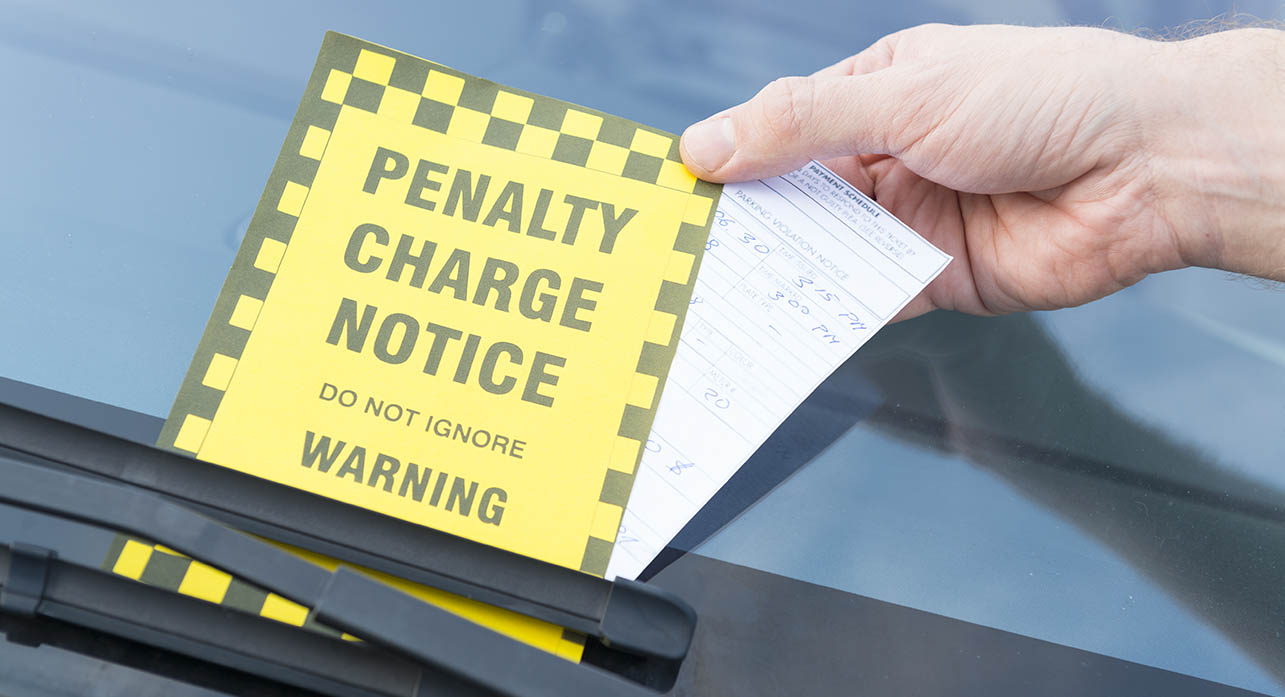Learning Zone
PCN management for fleets
With over 18,000 penalty charge notices handed out every day, management can be key to cutting fleet fine costs
We share advice on how to keep control of charges

Many fleet operations, in particular delivery and service vans and lorries, are major targets for parking tickets – commonly referred to as penalty charge notices (PCNs).
With over 18,000 parking tickets issued in the UK every single day, fleet managers are tasked with not only managing these costs but also looking at ways in which the likelihood of picking up them up can be reduced.
PCNs are issued to a vehicle’s owner, who is then legally responsible for paying the fine. Registered vehicle keeper details are confirmed via the Driver and Vehicle Licensing Agency (DVLA), the local authority or the company managing the private car park.
If you’re leasing your fleet vehicles through a rental company, then this can pose additional challenges. A fleet or driver may have little or no time to appeal a parking fine. Depending on your rental agreement, they may be automatically paid for by the leasing company and then recharged back to you. There’s also the risk of an additional administration charge being added onto this too.
Why have parking charge notices?
Although it can be frustrating to pick up a fine, PCNs do serve a valid purpose. They support the correct control and management of traffic flow, help reduce congestion and prevent drivers from causing an obstruction or any unauthorised parking.
What do you need to do once you receive a fine?
Usually, you have 28 days to pay a parking fine with a reduced fee if it’s paid within 14 days. If you don’t pay within 28 days, you will usually be issued a ‘charge certificate’ and the fine is then increased by an additional 50%.
Failure to pay a fine can lead to prosecution – the fine will then be even bigger plus there will be additional court costs to pay too.
With fines issued by car park management firms hitting a record £5.65m last year, setting a strategy to pay within the 14 day window may be the best option for your fleet.
How do you dispute a parking notice?
According to guidance by the Government, if you’ re going to challenge a parking ticket, you usually have 28 days to do so. If this is done within 14 days of the fine being issued but is rejected, you are still eligible for the 50% reduction against the cost of the original fine. If the challenge is accepted, then you don’t need to pay anything.
Whether you decide to pay or dispute the fine, just be sure to pay them within the timescales to prevent the fees from escalating.
What can fleet managers do to prevent or minimise fines?
Prevention is the best cure in this case, but this is often easier said than done. At the end of the day, no driver wants to incur a fine. But help is on hand with these tips:
1. Educate drivers about parking rules and restrictions
It’s always worthwhile incorporating parking rules and restrictions into both your driver training and toolbox talks – include these in refresher sessions too. Training needs to cover areas such as parking restrictions, waiting times and bus lanes. It may be worthwhile testing driver knowledge of relevant signage as well.
2. Analyse information about fines
Information reporting on fines is a very useful exercise to determine why and how fines are occurring. This is where fleet management software plays its part in understanding fines – trends may reveal a particular delivery round throwing up a higher percentage of fines. Playing detective and investigating your findings can provide a solution to particular fine hotspots and such knowledge shared with your drivers may help to prevent further fines occurring.
If making particular deliveries is proving troublesome, it can be worthwhile contacting your local authority. Highlight any concerns that you have to determine the possibility of mutually beneficial solutions.
Using fleet management software to manage fines
Fleet management software such as FleetWave can excel in managing fines. The technology supports automated payment and mitigates the risk of missed penalty notices and fines inflating. It’s important to monitor and challenge the nature of the fines so that decisions can be made to minimise the risks of collating any more. For example, it’s worthwhile looking at the correlation between drivers and fines to see if any are clocking up a lot more fines than others. The solution may be something simple like additional training or even rescheduling deliveries to a different time of the day to avoid loading restrictions.
The number of fines being issued may be increasing but technology is on hand to help manage and mitigate them from becoming troublesome for fleets.




